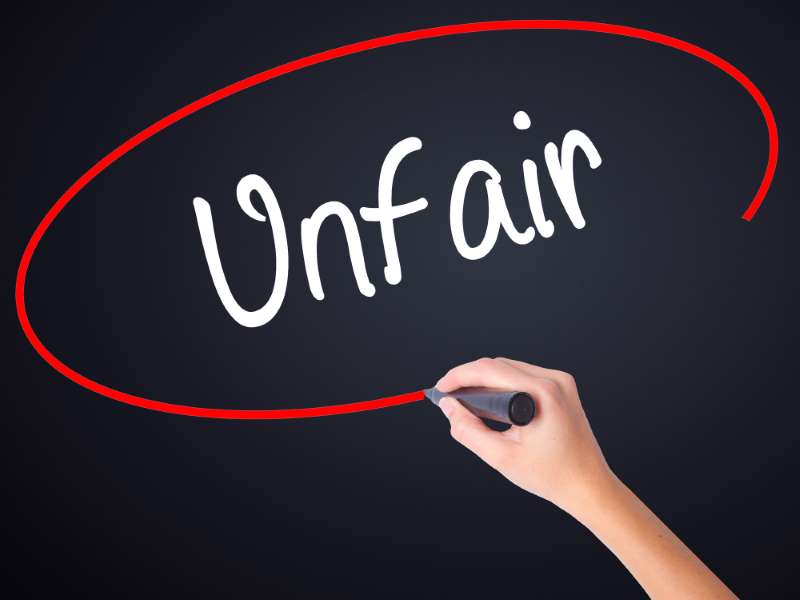DETERMINING CURRENT MARKET RENTThe Supreme Court has provided guidance on the standard of review expected of a valuer under the Retail Leases Act 1994 (NSW) (the Act), with specific emphasis put towards the factors a valuer must take into account when determining market rent. The decision in Hanave Pty Ltd v Nomad Sydney Pty Ltd (formerly Wine Nomad Pty Ltd) [2023] NSWSC 265 (Nomad) is significant for retail landlords and tenants in NSW that have market rent review provisions in their leases. Current market rent Pursuant to the Act, “current market rent” must be assessed on an “effective rent basis”, meaning the valuer must consider the factors that are set out in section 31(1)(a) of the Act which include the:
The valuation, which is often conducted by an independent valuer, must exclude the value of any goodwill relating to the tenant’s occupation or any value of fixtures. Standard of review In Nomad, the Court determined that a valuer’s sole focus when determining the “current market rent” should only be on the factors set out in section 31(1)(a) of the Act, and that the valuation will be considered as a “legitimate methodology” provided the valuation adequately considers the section 31(1)(a) factors. The weight to be given to each of the factors is not a legal test and is a matter for the valuer to determine. Providing reasons In Nomad, the Court confirmed that for a valuation to be legally binding on the landlord and tenant under the Act, the valuer must provide legally adequate reasons for its determination. As per section 31(1)(e) of the Act, the valuation must be in writing and must explain how the relevant section 31(1)(a) factors influenced the valuer’s determination in detail. Importantly, where a factor has not been included in a valuation itself, courts and tribunals will infer that it was not considered as part of the valuation, and valuers should now ensure that they expressly note and explain why a factor has been omitted to ensure the valuation meets the standard of compliance now required as a result of the decision in Nomad. Courts and tribunals are now empowered to scrutinise valuations that do not adequately justify the reasons for a valuer’s determination of “current market rent”, and landlords and tenants should be mindful of the now heightened scrutiny available to these judicial bodies in this regard to invalidate a valuation. Comparable leases and rent incentives It is ultimately up to a valuer to adopt whatever methodology of valuation provided such method adequately considers the section 31(1)(a) factors and the valuer provides reasons for its determination in detail. In Nomad, the Court confirmed that whether a valuer needs to consider the provisions of comparable leases ultimately depends upon the selected methodology (i.e., if a valuer adopts the direct comparison method, comparable leases will need to be considered pursuant to section 31(1)(a)(i) of the Act). With respect to rent incentives, if a valuer chooses to consider some but omits referring to other incentives provided for comparable properties, the valuer must provide an explanation for those omissions to ensure compliance with the need to “have regard to” rent incentives as per section 31(1)(a)(iv) of the Act. However, where incentives are identified, the weight given to the same is ultimately up to the valuer to determine. Matthews Folbigg Lawyers has an experienced team dedicated to property related matters. If you would like more information or advice in relation to the determination of “current market rent” under your retail lease, or another property related matter, please contact our Property team on (02) 02 9635 7966 or email info@matthewsfolbigg.com.au DISCLAIMER: This article is provided to clients and readers for their general information and on a complimentary basis. It contains a brief summary only and should not be relied upon or used as definitive or complete statement of the relevant law. |
Debt Recovery by Garnishee Notice
When a Court makes a judgment in your favour for the recovery of a debt, there is a mechanism available to recover the judgment debt through a third party. This mechanism is a garnishee order.
What is a Garnishee Order?
A garnishee order is an order of the court which enforces a third party who either owes money to a debtor, or is holding money for a debtor, to make payment to the creditor of any funds held by that third party for the benefit of the debtor.
This order essentially permits a judgment creditor to ‘seize’ monies from the judgment debtor via a third party. [...]
AICM releases an industry first report into consumer overdue credit trends and practices
The Australian Institute of Credit Management (“AICM”) released an industry first Overdue Credit Index Report 2023 (“the Report”) which analyses levels of overdue credit across a range of financial products in the Australian market.
The Report presents a measure of overdue credit, called the ‘Overdue Credit Index’, based on aggregate data of reported repayment history for credit accounts across mortgages, credit cards and unsecured personal loans using data provided by Equifax and Illion for the period from 1 July 2019 to 1 August 2022. This index provides transparency around patterns of overdue credit and hardship requests in the Australian market and allows credit managers to express their performance and resourcing relative to a benchmark. [...]
Reform to Unfair Contract Terms – What’s New?
Reform to Unfair Contract Terms – What’s New?
Commencing on 9 November 2023, significant reforms were made to the Australian Consumer Law (“ACL”) concerning unfair contract terms (“UCT”) within standard form contracts. These changes will attract substantial penalties under the Competition and Consumer Act 2010, as well as the ASIC Act 2001 for both businesses and individuals. It is therefore vital that you are made aware of the reforms to the ACL and how they may affect you.
In 2010, a term in a standard form contract was deemed to be unfair if it: [...]
Significant Changes to NSW Duty and Land Tax in 2024
Key changes to NSW Duty and Land Tax take effect as of 1 February 2024, from the Treasury and Revenue Legislation Amendment Bill which assented on 27 September 2023.The reform introduces substantial amendments aligned with the NSW Government’s 2023-24 Budget. Key changes are set to impact land tax, corporate reconstruction, consolidation transactions and landholder duty, demanding attention and strategic planning from affected individuals, businesses and investors.
Summary of some of the key reforms include: [...]
Intellectual Property Employer or Employee…who owns the rights?
Do you have employees that do not understand their obligations regarding work they create during the course of their employment? Are you unsure of what rights as an employer you have to work product?
The primary position is that any work created by an employee is owned by the employer, including any intellectual property rights within the work. There may be ways in which an employer or employee has contracted out of this position or altered ownership of the various rights. There is also the question of moral rights…but that is for another time. It is a common misconception by employees that any work product they create is their own and they are entitled to all rights to such work product upon leaving their employment. Former employees, as a result, can then conduct themselves in a manner which may infringe on rights held by the employer in copyright which subsists in a work they may have created whilst employed. [...]
Intellectual Property Rights
Metaverse vs Reality: Intellectual Property Rights
Despite the law often falling behind the fast-paced nature of the digital world, current legislative framework around intellectual property protection has been implemented to provide protection in the metaverse.
The metaverse is a virtual space that mimics reality, allowing access through technologies such as virtual reality, augmented reality and artificial intelligence. In contrast to the internet where browsers are considered an ‘observer’, the metaverse is a place where people can ‘live’ and be a part of a virtual space surrounding them. [...]
When is Trade Mark Infringing
There are many circumstances where the use of a logo, image, word, phrase or other form of mark may be infringing on a registered trade mark. However, it can sometimes be difficult to comprehend or identify when infringement occurs where it is not clear if the alleged infringing mark is actually being used as a trade mark.
Pursuant to s 120 of the Trade Marks Act 1995 (Cth) (“the Act”), a person can only infringe a registered trade mark. Therefore, if a person uses a trade mark but has never taken steps to register the trade mark with IP Australia (and obtain registration), they do not receive the protection and exclusive right provided by the Act to make a claim and/or prosecute infringement of their trade mark. [...]
Security for Costs Order
Security for Costs: How to not get dragged down by the impecunious Plaintiff
A successful defendant can often be left with a significant legal bill despite a court ordering the plaintiff to pay their costs of the proceeding – winning the battle but losing the war.
Imagine you find yourself as a defendant in proceedings that you never saw coming and which should ultimately never have happened. The plaintiff’s claims may lack merit and have very low prospects of success, but they commenced proceedings against you anyway in a desperate attempt to recover money that they lost as a consequence of their own actions. After all of the hours of stress, sleepless nights, phone calls, meetings, and thousands of dollars of legal fees, you and your legal team emerge from litigation victorious, with the plaintiff to pay your costs of the proceeding – only to find out, the plaintiff has no money, no assets and is unable to pay your legal fees. [...]
AICM Risk Report 2023
Australian Institute of Credit Management – Risk Report 2023
Credit professionals play a crucial role in any business, ensuring that both the risks of
defaulting on contractual obligations are managed, and that payment of goods or services
are received in a timely manner.
The Australian Institute of Credit Management (AICM) is a member body for commercial and
consumer management professionals formed with the goal of helping their members,
partners, government, other related bodies and the business community to succeed in
credit-related matters.
The AICM has released their Risk Report 2023 (Report) which provides a succinct and
useful insight on how recent and future economic conditions are impacting credit
professional’s abilities to manage risk and ensure a business is paid promptly for their
services. The Report draws on survey results collected from AICM members and Certified
Credit Executives. [...]
Strata – Electric Vehicle Ready Buildings Grant
The NSW Office of Energy and Climate Change (as part of the Net Zero Plan Stage 1) has introduced a grant with a quota to assist over 125 residential strata apartment buildings in NSW to install electric vehicle (EV) charging infrastructure within their carparks. Applications are now opened.
What this means is that owners corporation apartment residents may be able to charge their electric vehicles at home (within their building) without seeking electric ports elsewhere!
Eligibility Criteria (briefly) [...]
Security for Costs: How to not get dragged down by the impecunious Plaintiff
By Eleanor Campbell-Rogers, a Law Clerk of Matthews Folbigg, in our Insolvency, Restructuring and Debt Recovery Group
‘A successful litigant is entitled to the fruits of their litigation’.
Whilst this might be true, a successful defendant can often be left with a significant legal bill despite a court ordering the plaintiff to pay their costs of the proceeding – winning the battle but losing the war.
Imagine you find yourself as a defendant in proceedings that you never saw coming and which should ultimately never have happened. The plaintiff’s claims may lack merit and have very low prospects of success, but they commenced proceedings against you anyway in a desperate attempt to recover money that they lost as a consequence of their own actions. After all of the hours of stress, sleepless nights, phone calls, meetings, and thousands of dollars of legal fees, you and your legal team emerge from litigation victorious, with the plaintiff to pay your costs of the proceeding – only to find out, the plaintiff has no money, no assets and is unable to pay your legal fees. [...]






